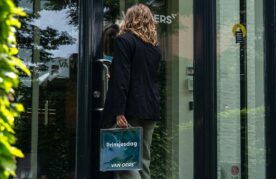The case
The taxpayer is a holding company based in the Netherlands. She owns a share of 75% in the subsidiary based in Kazakhstan. She borrows 125 million dollars from its shareholders and lends this money to its subsidiary in Kazakhstan. The actual interest or repayment depends on the financial results of the subsidiary.
The Tax Authorities argue in this case there is no VAT entrepreneurship.
The court rules it is a commercial loan, at a commercial interest rate, which, given the amount of the loan and the high risk (due to uncertainty about interest payments and repayment of the loan), is provided in a businesslike manner. The fact that the taxpayer only acts as a ‘conduit’ does not change this. The court also rejects the argument that this loan should be regarded as a capital contribution. Therefore, according to the court, there is VAT entrepreneurship.
The Court of Appeal rules that the lower court correctly established that it is a loan. However, unlike the lower court’s opinion, it is not a loan provided in a businesslike manner.
Referring to the EDM judgement (ECJ, April 29, 2004, C-77/01), according to the Court of Appeal, businesslike activity is present if it is conducted in a manner and under conditions similar to those of a credit institution/bank. This is not the case in this situation. However, this does not exclude the possibility of still engaging in business or commercial activities. This requires the activity to be characterized by the pursuit of maximum return on invested capital. According to the Court of Appeal, this is not the case here, since the loan agreements with the shareholders indicate that the taxpayer may only use the borrowed funds for lending to its subsidiary under the same conditions that apply to it. This means that it cannot achieve/make a return on the loans to its subsidiary. Therefore, according to the Court of Appeal, there is no business or commercial activity, so the taxpayer cannot be considered a VAT entrepreneur due to providing loans to its subsidiary.
The taxpayer did not file an appeal in cassation. Therefore, the Court of Appeal’s decision is final.
Relevance for Dutch practice
If providing loans for VAT is considered a non-entrepreneurial activity (not closely related to an activity that does qualify as VAT entrepreneurship), this results in a limitation of the right to deduct input VAT. If providing loans does qualify as VAT entrepreneurship, it generally leads to a deduction restriction since it involves a VAT-exempt activity. However, there is an important exception to this, namely providing loans to a party located outside the EU.
In situations where loans are provided to parties within the EU and the interest income exceeds 1% of the total turnover (a pro rata deduction restriction applies only if the turnover from exempt activities exceeds 1% of the total turnover), we recommend further assessing the situation. Especially considering the increasing interest rates, the latter situation may occur more frequently in the future.
More information
If you have any questions about these changes, please contact us. We will be happy to advise you. You can contact us via e-mail: info@vanoers.nl.





